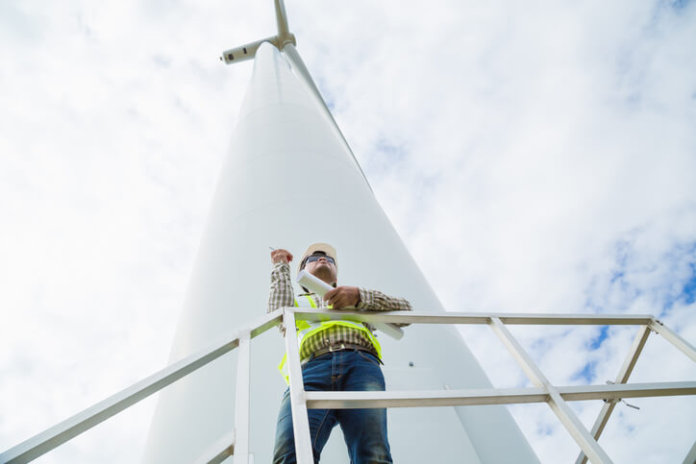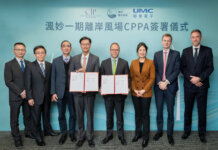Massachusetts’ Baker-Polito administration has announced $721,500 in grants to six academic institutions and labor organizations to establish workforce training and development programs to support the state’s emerging offshore wind industry.
The awards include a $200,000 commitment from Vineyard Wind’s Windward Workforce Fund. The programs will be located at institutions in Barnstable, Bourne, Fall River, New Bedford, Newton and Martha’s Vineyard.
“Growing a workforce for the construction, installation and operation of offshore wind will create opportunities for Massachusetts residents to take advantage of the thousands of jobs created by this emerging industry,” says Massachusetts Lt. Gov. Karyn Polito.
The institutions receiving funding are as follows:
- Bristol Community College (BCC) – $200,000 to establish basic safety training and basic technical training to Global Wind Organization (GWO) standards at its campus in New Bedford.
- Massachusetts Maritime Academy (MMA) – $184,000 to establish all five modules of GWO basic safety training at its campus and develop an “introduction to offshore wind” course for MMA cadets. A crew transfer training facility, supported by the Massachusetts Clean Energy Center (MassCEC), will be operational this summer.
- UMass Amherst – $105,500 to complete the initial design of and develop most of an offshore wind professional certificate program to be offered at the Mt. Ida campus in Newton.
- Pile Drivers and Divers Local 56 – $100,000 to sponsor trade union members for GWO basic safety training at Massachusetts Maritime Academy.
- Cape Cod Community College – $66,570 to develop and deliver a suite of courses to introduce students and workers to careers in offshore wind.
- Adult Continuing Education – Martha’s Vineyard – $65,000 to partner with BCC and MMA to provide on-island courses and training to support basic safety and technical certification, as well as offshore wind technician certificates.
“The offshore wind industry is poised to create new renewable energy jobs, and these programs represent an important development as the commonwealth readies for the first large-scale project in the nation,” says Stephen Pike, CEO of MassCEC. “With Massachusetts’ proud maritime heritage, robust innovation economy and academic and training assets, the state is very well-positioned to grow a workforce that will contribute to this new American industry for years to come.”
In April 2018, MassCEC released a report on the workforce needs and economic impact of the emerging offshore wind industry, finding that the deployment of 1,600 MW of offshore wind is estimated to support between 2,300 and 3,100 direct job years over the next 10 years and generate a total economic impact in Massachusetts of between $678 million to $805 million.




